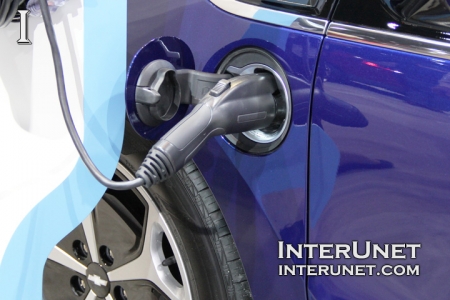
What is better to buy electric or conventional vehicle?
Car prices comparison 2012 electric vs gasoline engine
Nowadays more and more automobile manufacturers start to produce electric vehicles as an alternative to conventional cars. They do it because electricity is much cheaper now compare to gasoline price. It wasn’t necessary to design electrical vehicles before due to low cost of fuel.
The main point of these calculations is a determination which car is more cost efficient for you overall. It is not enough and wise to consider just a cheap to drive factor. 8-10 years is a time how long the battery of electric car should last (according to electric car manufacturers). 13,500 miles was taken as an average an American driver drives per year, or 135,000 per 10 years period in this example.
Car fuel and electricity expenses comparison chart – electric vs gas vehicle
| Car models | Electric vehilce | Conventional vehicle | Total | Difference | ||||
| Price* | Charging station* | Electricity* | Price* | Oil change* | Gasoline* | |||
Nissan Leaf 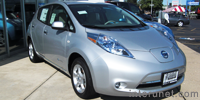 |
$35,200 | $2,000 | $3,726 | $40,926 | + $5,078 | |||
Nissan Versa Hatchback 1.8S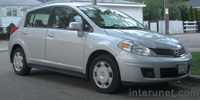 |
$15,770 | $800 | $19,278 | $35,848 | ||||
Ford Focus Electric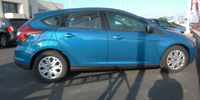 |
$39,200 | $1,500 | $4,704 | $45,404 | + $5,931 | |||
Ford Focus SE 5Doors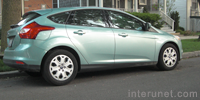 |
$19,395 | $800 | $19,278 | $39,473 | ||||
Mitsubishi i-MiEV |
$29,125 | $2,000* | $4,006 | $35,131 | - $4,354 | |||
Mitsubishi Lancer ES |
$17,895 | $800 | $20,790 | $39,485 | ||||
*Car prices not include any government tax credits which you may or may not qualify for.
*No maintenance expenses were compared.
*All vehicles prices are MSRP (manufacturer suggested retail price).
*City driving was taken into estimating fuel consumption.
*Estimated average cost of driving was increased at 30% after 5 years for electric vehicles (after some time you will drive less miles per one full charge of the battery – as manufactures state – 20 – 30% range).
*EVSE home charging dock will cost around $1,500 - $2,000 to get installed, and while it is looks like optional without one it will take more than 20 hours to charge the battery using regular 110V outlet. Mitsubishi do not estimate the installation cost but offer to call about the price local certified installer.
*All data for 10 year car usage. For shorter period numbers will differ.
How the data was analyzed
Car expenses chart
| Car models | Electric vehicle | Conventional vehicle | ||||||
| $ per KWh | kWh per mile | Ave. use kWh per 100 miles | Cost per 100 miles | $ per 1 gallon of gasoline | Ave. use miles per gallon | Gallons per 100 miles | Cost per 100 miles | |
| Nissan | ||||||||
| Leaf | .10 | .24 | 24 | $2.40 | ||||
| Versa Hatchback 1.8S | $4.00 | 28 | 3.57 | $14.28 | ||||
| Ford Focus | ||||||||
| Electric | .10 | .303 | 30.3 | $3.03 | ||||
| SE 5 Doors | $4.00 | 28 | 3.57 | $14.28 | ||||
| Mitsubishi | ||||||||
| i-MiEV | .10 | .258 | 25.8 | $2.58 | ||||
| Lancer ES | $4.00 | 26 | 3.85 | $15.40 | ||||
All costs are for 2012
For conventional vehicles $4 per gallon of gas was taken as an average, but actual gas prices vary not only from state to state, but from day to day as well.
To the total gas expenses per 10 year period was added cost of changing oil. Ford recommends interval for oil change no longer than 10,000 miles, Mitsubishi 7,500 miles, Nissan depending on oil and filter quality. Based on the cost of quality motor oil and filter $800 will cover 20 times of oil change which will not exceed any manufacturer recommended intervals.
Electric vehicle use electricity as a source of energy and all energy expenses were calculated based on $0.10 per kWh. Note: some states in US have higher electricity cost, some lower. All data are based on manufactures specifications and new battery life for electric vehicles.
There are many factors which affect the actual mileage and cost per mile accordingly. For example, any car whether electric or conventional may perform not at their best under the following conditions:
Driving conditions - you might drive less miles per one charge of the battery or per gallon of gasoline in summer and winter months compare to fall and spring months. It generally depends on extreme temperatures that are outside and weather conditions. Therefore, the more energy your car uses to heat or cool the cabin the faster your battery will exhaust or more fuel will be taken. Too strong winds might affect your energy surplus because then it may require using much more electricity and gasoline to overcome air resistance.
Cargo and topography come also into play because your heavy loads and driving up steep long inclines will reduce range also.
The range can be decreased by your driving style. If you are a careful driver and use smooth acceleration and deceleration then it will extend range. On the other hand, your excessive acceleration and deceleration might reduce it significantly.
Note: all numbers are a simple prices comparison which might vary or change by car manufacturers at any time as well fuel prices are constantly changing. The data is a general idea what are the main expenses for conventional and electric vehicles and it is only a driver’s decision which car to buy after analyzing budget, practical needs and preferences.
